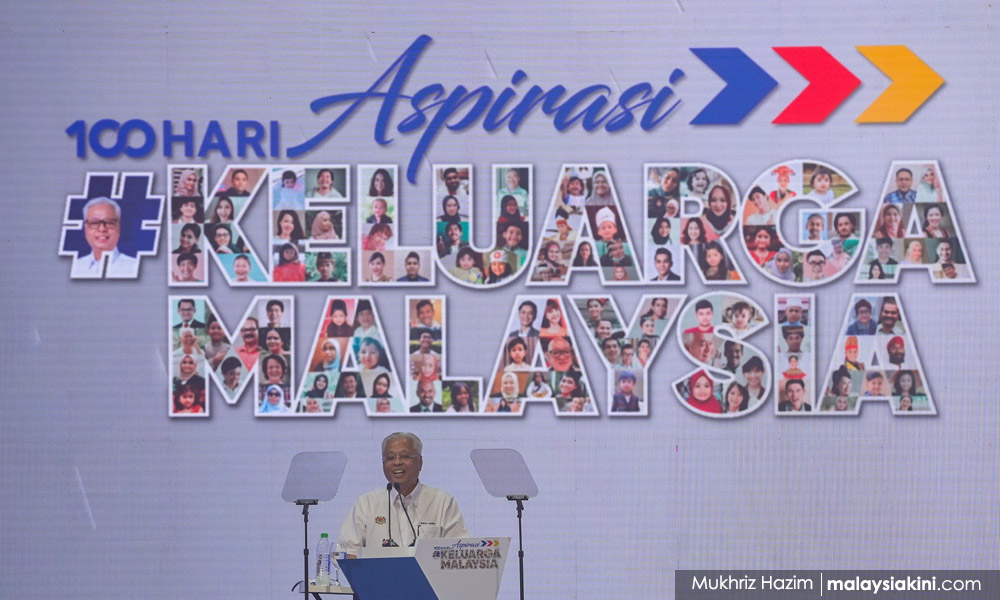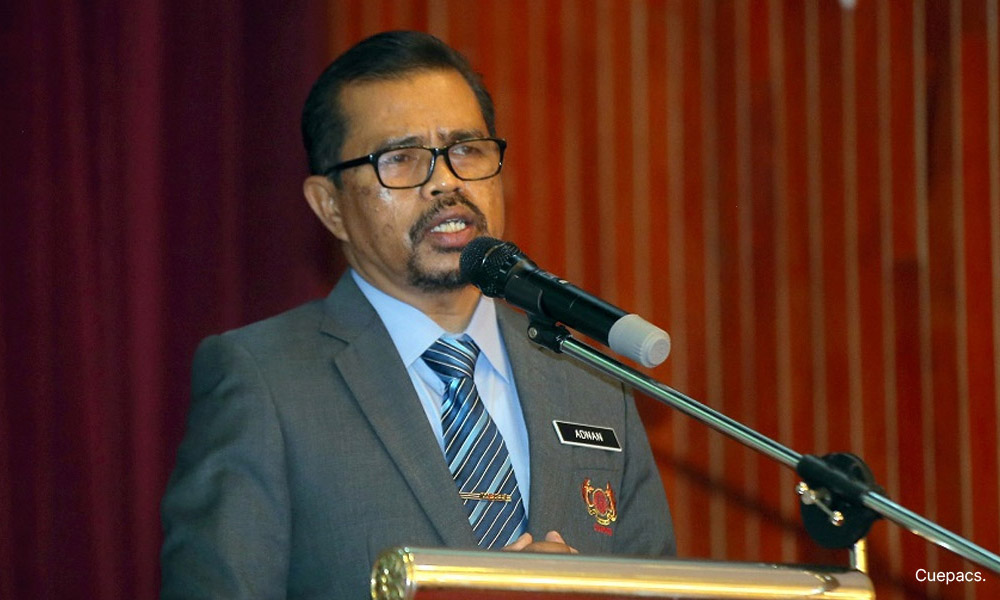Recently, an MP asked what has been construed as an unnecessarily provocative question about the Malaysian civil service.
The question was on the breakdown of the racial composition of the civil service and if the government has any plan to make it more representative of the ‘Keluarga Malaysia’ concept promoted by Prime Minister Ismail Sabri Yaakob.
The MP does not seem to be aware that Malaysia already has a multiracial civil service. As clarified by Minister in the Prime Minister’s Department (Special Functions) Abd Latiff Ahmad, of the total number of 1.2 million civil servants, 987,333 comprised Malays, 73,190 Chinese, 60,084 Sarawak bumiputeras, 59,978 Sabah bumiputeras, 47,751 Indians, 2,417 Orang Asli and 8,698 others.
This multiracial composition is also found in the top posts (super scale) above the Grade 56 category, 3,300 are Malays, 386 Chinese, 240 Indians, 74 Sabah bumiputeras, 53 Sarawak bumiputeras, three Orang Asli and 42 others.
The breakdown shows that no racial group has been left out - at the top, middle or bottom strata. In fact, there may be as many as 10 or more racial communities in our civil service. Perhaps a world record?

How has Malaysia achieved such a racially diverse civil service is really a feat. It is also a big thing which the government has not bragged about. In the past, such an issue unfortunately was covered by the Official Secrets Act.
In fact, all our prime ministers and even our fearless media have been shy in sharing this with the public.
New era of transparency
Today, the spirit of ‘Keluarga Malaysia’ has opened the door to a new era of transparency in which there are few secrets and censorship by the authorities.
Malaysia’s incredible achievement of a multiracial civil service can be seen as the outcome of a long-standing ‘impartial’, ‘fair’ and ‘transparent’ non-racial recruitment and promotion policy practised since independence.
As background, the Reid Commission members had recommended that a racial quota system was to be implemented as part of Article 153 to give the Malay community and natives of Sabah and Sarawak special privileges.
This included the implementation of a quota system in the civil service and other sectors. The commission had also, as balance, emphasised the importance of safeguarding the legitimate interests of other communities.
But the Alliance and BN governments found the imposition of any quota system to be unnecessary for the civil service since it was already selecting the best and brightest. In fact, the beginning of ‘meritocracy’ unkindly referred to as requiring ‘kulit-fication’ can be traced to the civil service.
This also implied that there is no need to safeguard or guarantee the interests of the other communities which - even if politicians deviated from - the civil service would resolutely help protect.

As explained by Abd Latiff and recorded in the official records for posterity, the government does not impose any quota for the intake based on race or ethnicity. In his words: “All recruitment by the Public Services Commission is based on merit and competency. This is to ensure only the best and quality candidates are chosen as civil servants.
“There is no quota based on race and ethnicity in the intake or promotion of civil servants. All Malaysians are given equal opportunity as it is based on open and fair competition.”
Some may think this is historical negationism taken to an extreme articulation in the Dewan Rakyat.
Ending public debate on civil service matters
It is unfortunate that despite the standing criteria of merit and competency for application and promotion, there is a numerical superiority in one community. But this is through no fault of the government.
According to the Congress of Unions of Employees in the Public and Civil Services (Cuepacs) president Adnan Mat, this situation is entirely the fault of the communities who have refused to apply for civil service jobs and not because the Public Services Department and the government are practising race-based bias.
In supporting the government, Adnan described the allegation as “serious and baseless”. He also warned, “all quarters not to use the public service for their own political interests". But he stopped short of calling it “anti-national”, so this controversial issue is likely to continue being raised by a sceptical public.

Malaysians should be proud and thankful that not only do we already have a ‘Keluarga Malaysia’ in the civil service but the highest rank of superscale officers such as the secretaries-general and directors-general comprise the ‘creme de la creme’ of the country’s human resources.
They have indeed turned our civil service into a ‘world-class’ one - lacking in perhaps only one area recently identified by Ismail Sabri - the standard of English.
In every important aspect - leadership, competency, efficiency, creativity, problem-solving skills - we have a surfeit of the best talent in the nation.
But it is not only brains that are in abundance in our civil service. Independent, incorruptible, dedication to service, resistance to cronyism, devotion to the public welfare, transparent, accountable and committed to helping irrespective of race and religion - these qualities of our senior civil servants are never reported on. Instead, there are attempts made to single them out for criticism.
Let it be also noted that the humble civil servant has borne the burden of planning and implementing the politically neutral unpleasant task of restructuring society and economy quietly and effectively.
Today, too, the focus is on the size of the civil service and its cost in the national budget which may bankrupt Malaysia. Critics need reminding that the Treasury has deep pockets and size matters. Also, if you pay peanuts, you will get monkeys.
That is why the government has consistently ensured that the civil service - even if some communities avoid applying or refuse to join in serving the nation - will grow in size, budget and status (it is only partially true that civil servants have a monopoly of Tan Sri-ships, Datuk-ships and miscellaneous other titles.
The coming budget and general election may once again provide the government and the Treasury the opportunity to show the nation’s deep appreciation for our outstanding civil service. - Mkini
LIM TECK GHEE is a former senior official with the United Nations and World Bank.
The views expressed here are those of the author/contributor and do not necessarily represent the views of MMKtT.




No comments:
Post a Comment
Note: Only a member of this blog may post a comment.